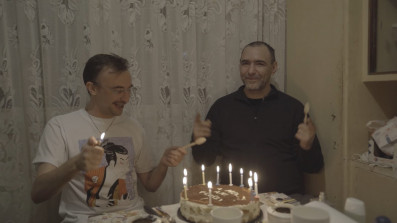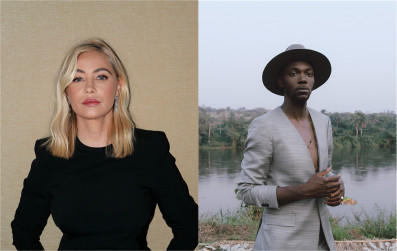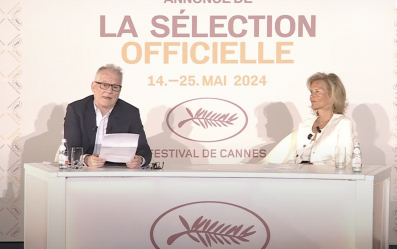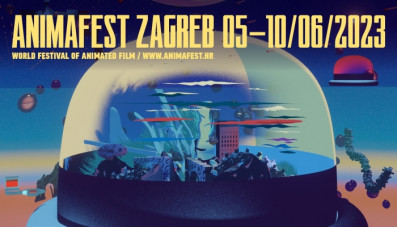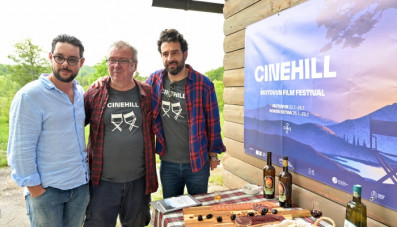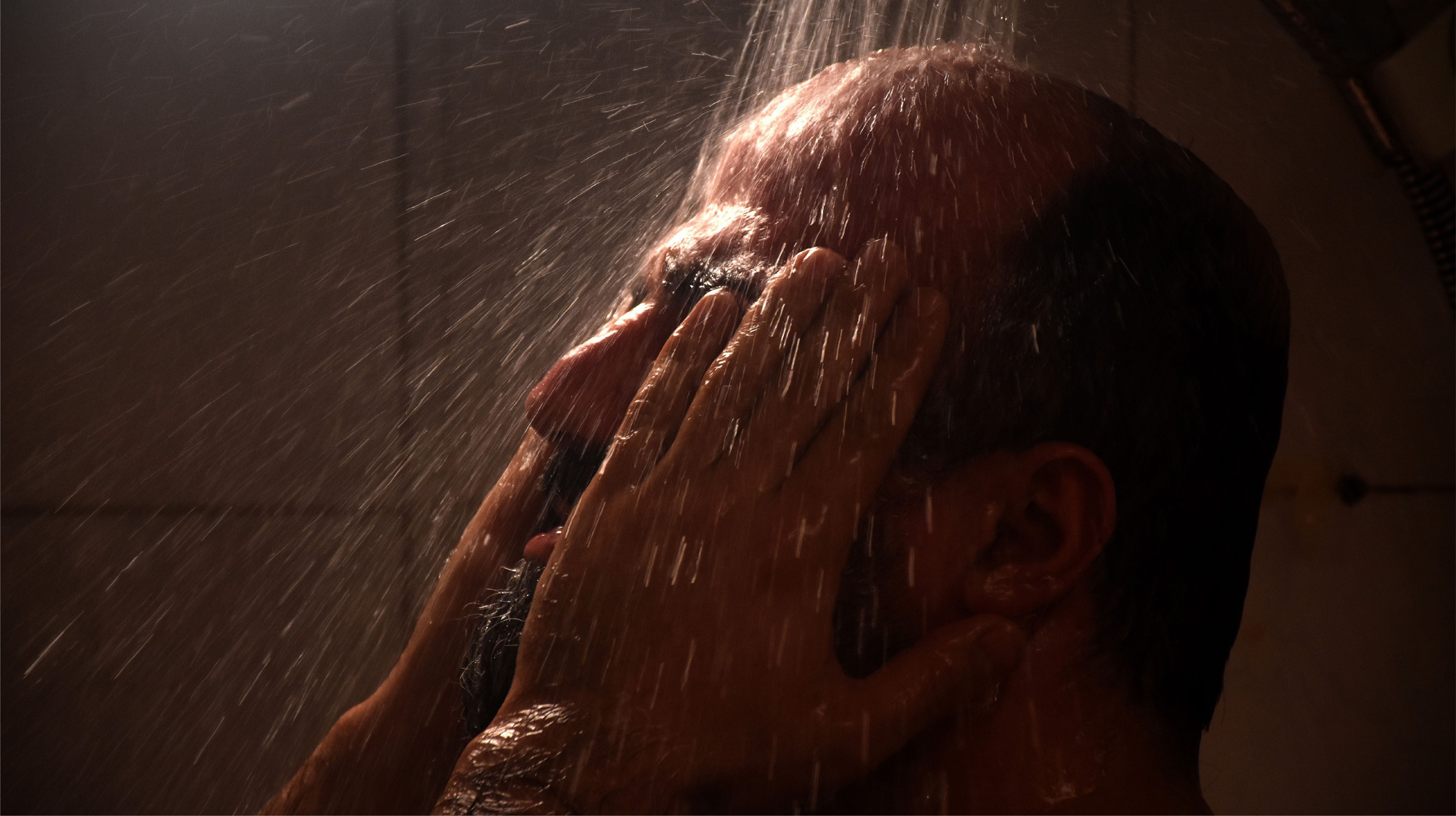
BERLINALE SPECIAL Day 9: "Irradiated" and "There is no Evil" bring stories about a strength to pull a trigger and cause peace.
War, obedience, death, trauma and suffering as central topics of final two entries of 2020 Berlinale Competition programme
The closure of 70th anniversary Berlinale comes today with the final two films in the competition programme. War, obedience, death, trauma and suffering are central topics both of the abstract documentary art piece Irradiated by Cambodian director Rithy Panh and There Is No Evil, a marvellous philosophically and politically driven oppression drama by Iranian director Mohammad Rasoulof that is not attending the festival because of an Iran-sanctioned travel ban and a possible prison sentence for this film.
Rithy Panh in his latest work Irradiés takes a film essayist approach to the subject of conflict and mass slaughter from the events that scarred humanity during the 20th century. He questions and experiments with the concept of how do we react, create symbols and think about the horrific tragedies caused by the hands of humankind. Panh merges the poetry, archive footage of wars and remarkable experimental dance footage, showcasing it as a triptych of moving images.
By making the striking division of the widescreen form into three equal, squarer frames, Panh builts up the tension while he paints his imagery of pain and lack of empathy and understanding in the world. As we are watching images from Birkenau, Le Havre, Hiroshima, Verdun, Rwanda we can't escape what the director is facing us towards to. Moving the head away from one frame, and one screen just forces us to see the other one, that mostly repeats the same imagery with a small tilt to left/right.
In moments where central frame gets out of sync poetry or filthy truth, narrated by actors Rebecca Marder and André Wilms strikes and deepens the impact of what is presented... Luckily, Panh knows how to balance out the poetic philosophy and visual sensation of grotesque moments with heavily charged movements by the troupe of Japanese Butoh dancers. As the ghosts of failed past, dancing figures irradiate and purify the images of endeavour turning them into the splendid melancholy.
Marceline Loridan Ivens archive footage, from Nouvelle Vague era - that is shown in a final act of the film, highlights the unbearable gloom of human minds and the inner struggle of individualism between the one's ego and collective virtue. Irradiés truly is a magnificent piece of art that merges multiple forms and outgrows the medium of film for the sake of delivering heavy emotions and opening the mind of a viewer to rethink the moral history of society we are currently living in.
Irradies © Rithy Panh
Iranian filmmaker Mohammad Rasoulof, best known for A Man of Integrity- a drama about corruption and injustice in Iranian society- the film that got him Silver Hugo award for best screenplay at Cannes Film Festival as well as travel ban and a possible prison sentence by Iranian government, with his latest feature There is no Evil, once again tackles and provokes major issues in contemporary Iranian politics.
This time, through four segments, the director presents and questions the issue of the death penalty, the obedience of public to the harsh government ruling, the mindset of executors and the work they perform, and the price that pacifism carries in these conditions. Each of the film's four narratives brings with it a unique visual identity, pace, and approaches the theme individually, building and evoking a range of emotions and reactions, with its symbols, dialogical contemplations and environments.
See no evil
So in the first segment, we follow Heshmat - starring Ehsan Mirhosseini- middle-aged family man, as he leaves his work and spends a day with his family. While we follow -this loving and caring man that means only good to everyone around him- doing his daily chores, picking up his wife after work and daughter after school, going shopping, caring for his elderly mother-in-law everything seems more or less normal. There are a few questionable things, what is the work he does- because they get certain food ratios there? Or, why does he always send his wife to pick up his paycheck - when bank officials always bother her?
As the segment concludes (skip to the paragraph ahead to avoid SPOILERS ) we uncover that Heshmat is a government worker that deals the death sentences by the simple push of a button. The man comes to work early mornings, makes himself some coffee, sits at the console in a small room, and as the lights turn on red, Heshmat gets ready, waits for them to switch to green, pushes the button and ends lives of people he has never seen. The shocking revelation that common caring family man is a death sentence executioner stays to linger in the air as the director moves us to the next segment.
For those unsatisfied with the simple and unexpected conclusion of a chapter, Rasoulof leaves a small hint a few scenes a prior to the ending. While the Heshmat is driving to his work, in the middle of the night he stops on red traffic lights. But as they turn green, the man doesn't proceed and waits once again for them to turn red.
Do no evil
After we are presented to the gruesome topic of the film, the second film narrative introduces us to Pouya - starring Kaveh Ahangar- a young man serving his obligatory military service that he is trying to evade. As the segment starts he is stressing out, trying to escape the duty that follows him, to execute the enemy of the state he knows nothing about. With his anxiety exceeding with every moment he awakens all five of his fellow bunkmates. Awakened man start discussing execution duty, with each of them giving a unique perspective on it. Is three-day leave from the service worth one life? Who deserves to die/stay alive and why? If you pay somebody to carry out the killing for you, is there still blood on your hands? In life and death situations can one stay a pacifist?
Feel no evil
As we start apprehending "the rules of the game", director Rasoulof moves forward with the story of Javad - starring Mohammad Valizadegan- a soldier who was just awarded three-day leave from the service and he plans to spend them with his girlfriend Nana - starring Mahtab Servati. He has done this many times before, so what makes his leave special this time around is that it is Nana's birthday and he wants to propose her. As Javad approaches her village a veil of darkness starts rising above... A beloved wise man and a friend of Nana's family suddenly passed away, her birthday is postponed and it seems as Javad's proposal will also have to wait until the mourning is over.
This is the segment in which we get introduces to short term consequences of dirty government ordered work (to skip SPOILERS move to the next paragraph). The good soldier Javad trusts and believes his country and doesn't question the orders he gets. He just wants to finish his service and proceed with his life, get an education, drivers licence, passport etc (things that he can't get without finishing the service). But as Nana's family mourns and talks about the executed wise man, Javad soon realises that he was the one who took his good mans life and evoked this pain and suffering upon others, that in this case also has dumped upon him. With every push of a button, he did as an act of love, three days off to see his beloved Nana, he caused misery for someone else out there. With this realisation the question lingers upon, will he be able to reconcile with his actions.
There is no evil
The final segment of the film introduces us to long term consequences of opposing the government. It is the semi-autobiographical fragment of the film where the director Rasoulof tells a story of Barham- starring Mohammad Seddighimehr- the man who refused to be cold-blooded executioner during his military service and his German niece Darya - starring the director's daughter Bran Rasoulof- that came to visit him in Iran. As the two are trying to breach the age and culture differences and enjoy their time together, limitations of Barham's post defector life and the secrets he is keeping are making the short visit a melancholic nightmare for both of them.
Overall, There is no Evil, looks at a truly bleak hypothetical situation: When and why would any of us viewers pull the trigger and what consequences would follow from that decision, which is principally a harsh everyday life for an Iranian citizen. Rasoulof's four stories manage to genuinely approach and perceive this subject while remaining distinctly narratively interesting furthermore being audio-visual and symbolically mimetic. It is a work that will, in every aspect, succeed in meeting the needs of viewers of any level of film knowledge and opening their eyes to unspoken pain stakes of this Western Asia society.



